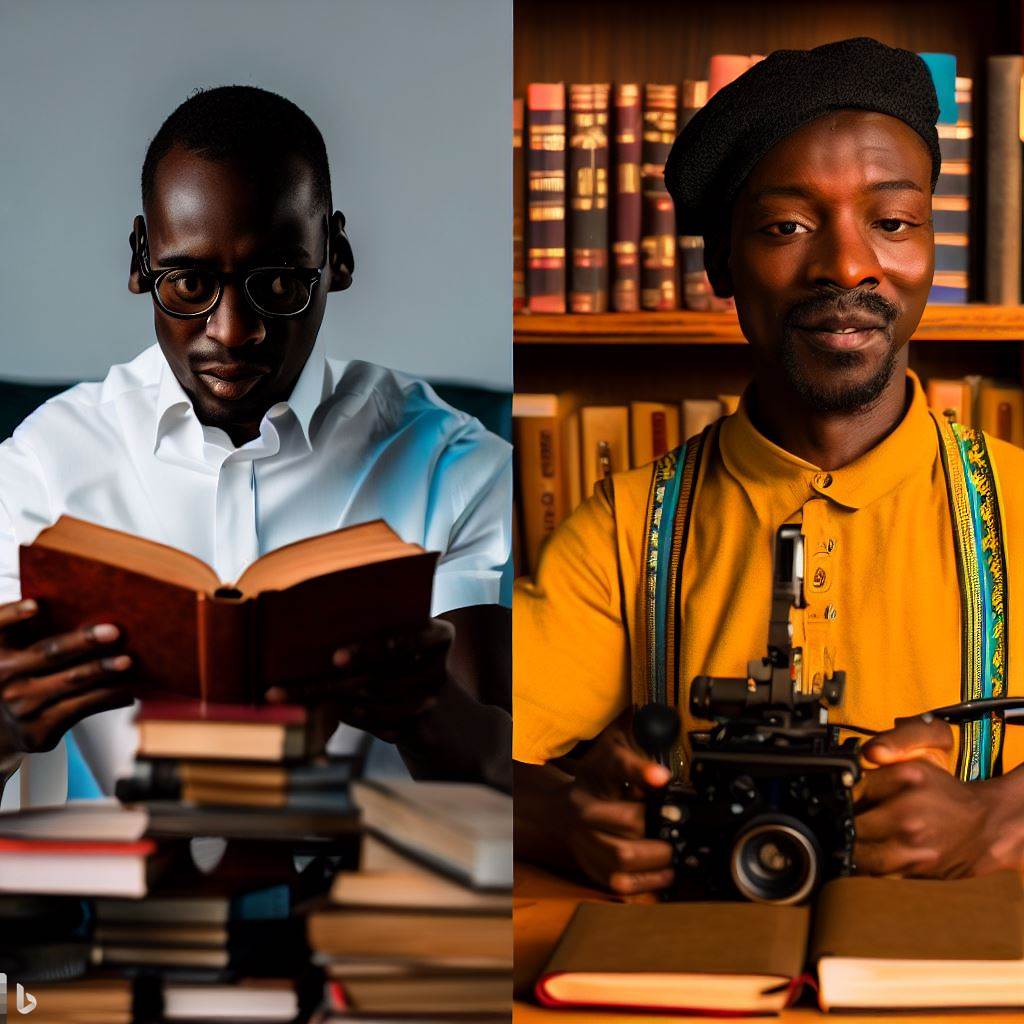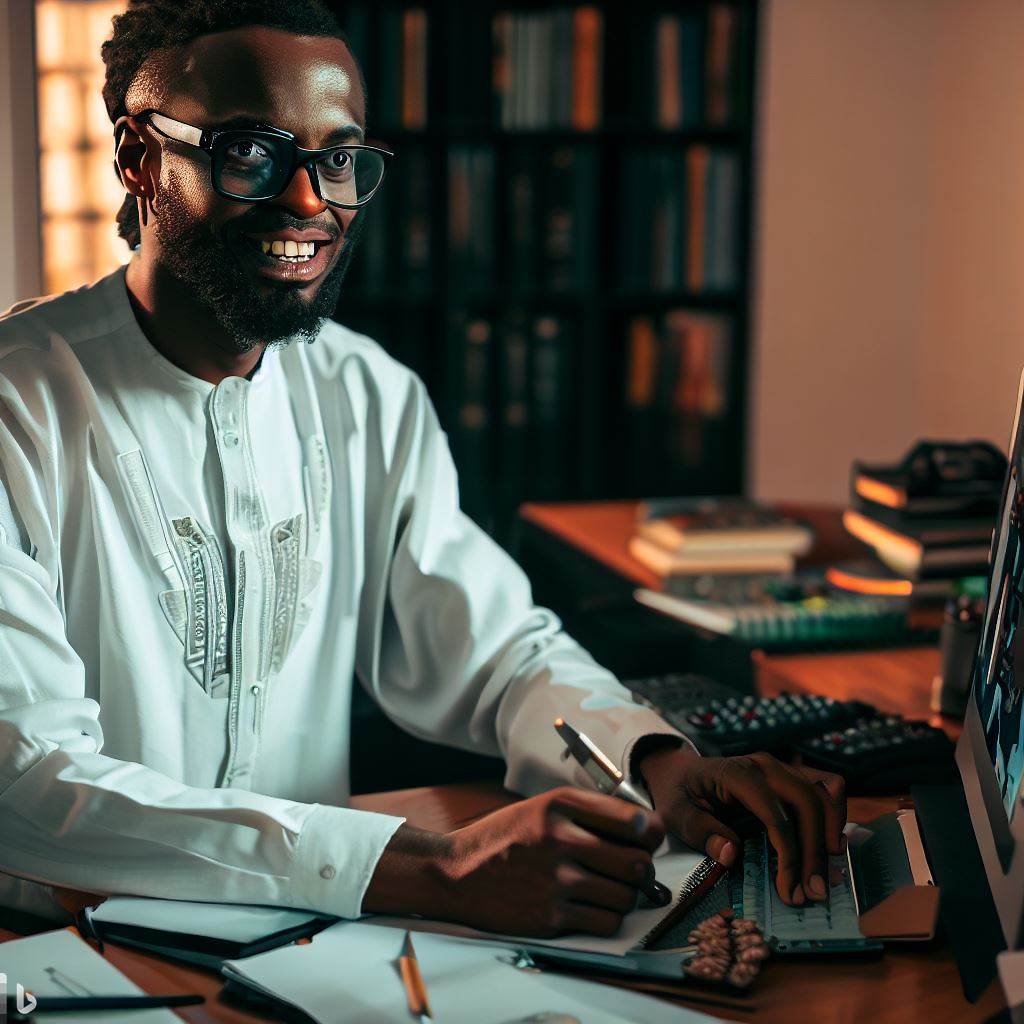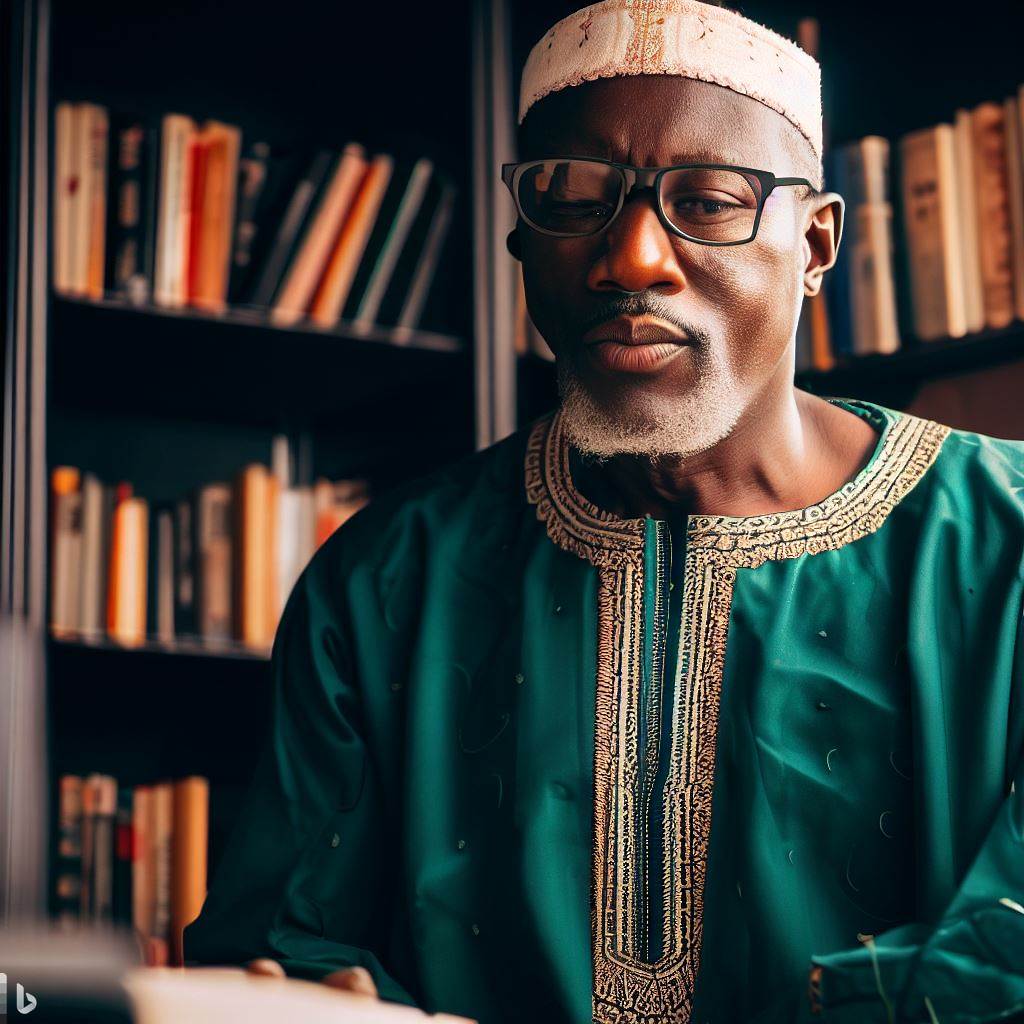Introduction
In Nigeria, the comparison between book editing and film editing is an intriguing topic worth exploring.
The creative industry values editing due to its crucial role in shaping the final product. It allows for improved storytelling, coherence, and clarity.
Examining the realms of book and film editing in Nigeria sheds light on how these two art forms converge and diverge.
Importance of Editing in the Creative Industry
- Refining Ideas: Editing polishes raw content, transforming it into a refined and compelling narrative.
- Clarity and Cohesion: Editing ensures coherence, enabling audiences to grasp the intended message effectively.
- Quality Enhancement: Well-edited works showcase professionalism and resonate more profoundly with audiences.
Comparative Analysis: Book vs. Film Editing
Book Editing
- Imaginative Journey: Readers construct worlds from words, making book editing essential for immersion.
- Character Depth: Detailed editing enriches character development and emotional connections.
Film Editing
- Visual Storytelling: Film editing manipulates visuals and sound to convey emotions and themes.
- Pacing: Editing influences the film’s rhythm, controlling the audience’s engagement and emotional journey.
Convergence and Divergence
- Narrative Essence: Both mediums demand cohesive narratives, though methods vary.
- Immersive Impact: Books engage imaginations, while films offer multisensory experiences.
- Artistic Collaboration: Authors and editors collaborate in books; film editing involves directors, editors, and cinematographers.
In Nigeria’s creative landscape, editing remains an essential thread that weaves together the realms of literature and film, shaping stories that captivate and resonate.
Overview of Book Editing in Nigeria
Book editing in Nigeria has a rich history and a significant role in the country’s publishing industry. Editors play a crucial role in refining and perfecting manuscripts before they are published.
Over the years, there have been both challenges and developments in book editing practices in Nigeria.
History and Significance of Book Editing in Nigeria
Book editing in Nigeria dates back to the colonial era when European publishers established their presence.
Initially, most Nigerian books were published by foreign publishers, and editing was done mainly by non-Nigerian editors.
However, as Nigeria gained independence in 1960, there was a growing movement to establish indigenous publishing houses and develop local editing expertise.
Nigerian editors played a vital role in promoting the country’s literature, culture, and history through their editing skills.
They helped shape and preserve Nigerian literary works, making them accessible to a wider audience.
The Role of Editors in the Publishing Industry
Editors are the gatekeepers of quality in the publishing industry. They ensure that manuscripts are well-written, coherent, and free from grammatical errors, typos, and inconsistencies.
Editors work closely with authors to refine their manuscripts, offering constructive feedback and suggestions to enhance the overall readability and impact of the work.
They also play a crucial role in preserving the author’s voice and style while ensuring clarity and coherence in the final product.
Editors act as mediators between authors, publishers, and readers, ensuring that the book meets the expectations of both the author and the target audience.
Challenges and Developments in Book Editing Practices
One of the main challenges faced by book editors in Nigeria is the limited pool of experienced and trained editors.
Many publishing houses struggle to find skilled editors who can effectively handle various genres and styles of writing.
Another challenge is the lack of standardized editing practices and guidelines, leading to inconsistencies in editing quality.
However, there have been significant developments in recent years to address these challenges.
Professional organizations, such as the Nigerian Book Editors’ Guild, have emerged to provide training, certification, and networking opportunities for editors.
The availability of editing software and online tools has also simplified the editing process, making it more efficient and accurate.
Additionally, collaborative efforts between publishers, authors, and editors have helped create a more supportive and productive editing environment in Nigeria.
In the end, book editing in Nigeria has a deep-rooted history and plays a vital role in the publishing industry.
Editors contribute to the development and promotion of Nigerian literature and ensure high-quality publications.
While there are challenges, such as the scarcity of experienced editors, significant progress has been made in improving editing practices through training, professional organizations, and technological advancements.
By recognizing the importance of book editing, Nigeria continues to nurture its literary culture and produce works that resonate with readers both locally and globally.
Read: Top Nigerian Editors: Inspiring Success Stories to Motivate
Overview of Film Editing in Nigeria
When it comes to the Nigerian film industry, commonly known as Nollywood, film editing plays a crucial role in the overall storytelling process and audience engagement.
Film editors in Nigeria are responsible for shaping the raw footage into a cohesive and impactful narrative.
The Role of Film Editors in Nollywood
Film editors in Nigeria have the challenging task of selecting the best takes, arranging them in a logical sequence, and trimming unnecessary footage.
They work closely with directors and producers to achieve the desired storytelling objectives.
Not only do film editors have technical skills in manipulating footage, but they also have a deep understanding of storytelling techniques.
They know how to create tension, build suspense, and evoke emotions through the arrangement of shots and audio.
In Nollywood, where movies are often produced on tight budgets and tight schedules, film editors need to be efficient and proficient in their work. They have to deliver high-quality editing within limited timeframes.
The Importance of Film Editing in Storytelling and Audience Engagement
Film editing is often referred to as the “invisible art” because when done well, it seamlessly merges shots and transitions, allowing the audience to focus on the story rather than being distracted by technical aspects.
Through editing, filmmakers can control the pace, rhythm, and flow of a movie. They can enhance the impact of dramatic moments, create surprise twists, and maintain the audience’s attention throughout the film.
In Nollywood, storytelling is at the heart of every movie. Nigerian films often revolve around cultural themes, societal issues, or personal struggles. Film editing is crucial in conveying these narratives effectively.
Effective editing can elevate an average movie to a memorable one. It enhances the cinematic experience and leaves a lasting impression on the viewers.
On the other hand, poor editing can ruin even the most promising story and disengage the audience. Furthermore, film editing in Nigeria has evolved over the years.
With advancements in technology and the availability of editing software, editors now have more tools at their disposal to enhance the visual and auditory elements of a film.
The use of special effects, color grading, sound design, and music selection are all elements that contribute to the overall aesthetic and emotional impact of a movie.
Skilled film editors in Nigeria are adept at incorporating these techniques to captivate and engage the audience.
Film editing in Nigeria, just like in any other film industry, plays a crucial role in storytelling and audience engagement.
Film editors are the unsung heroes behind the scenes, tirelessly working to shape raw footage into compelling narratives.
In Nollywood, film editors need to possess both technical expertise and creative storytelling skills to bring out the best in a movie.
Their contributions are integral in creating impactful movies that resonate with the audience and leave a lasting impression.
Read: How Technology is Shaping the Editing Profession in Nigeria
Comparison of Book Editing and Film Editing
Key Differences Between Book and Film Editing Processes
- The book editing process involves revising, proofreading, and restructuring the written content.
- Film editing, on the other hand, involves selecting and arranging visual shots to create a coherent story.
- Book editing focuses on the written language, grammar, and literary devices used in the text.
- In film editing, the emphasis is on sequencing, timing, and visual aesthetics.
- Books are usually edited by the author or professional editors, providing a solitary creative control.
- Film editing is a collaborative process involving directors, editors, and other creative professionals.
Impact of Differences on Storytelling and Artistic Expression
- Book editing allows for more flexibility in conveying the inner thoughts and emotions of characters.
- On the contrary, film editing relies heavily on visual cues to express emotions and advance the plot.
- Books can provide a more in-depth exploration of characters and narrative complexities due to length.
- Films, limited by time, often sacrifice certain elements and condense the storytelling process.
- Book editing gives readers the freedom to visualize the story based on their imagination.
- Film editing presents a more fixed and standardized visual interpretation of the story.
Different Approaches and Techniques in Book and Film Editing
- Book editing involves adding or deleting paragraphs, chapters, or even entire sections to enhance flow.
- Film editing focuses on trimming, rearranging, or deleting scenes to improve pacing and maintain coherence.
- Books employ literary devices like foreshadowing, flashbacks, and stream of consciousness.
- Films use techniques such as montages, close-ups, and special effects to convey the desired message.
- Book editors work closely with authors to preserve the writer’s unique style and voice.
- Film editors collaborate with directors to ensure the visual style aligns with the intended storytelling.
In fact, book editing and film editing significantly differ in their processes, impact on storytelling, and techniques employed.
While book editing allows for more freedom and exploration, film editing relies on visual cues and collaboration to create a cohesive narrative.
Both mediums require skilled editors who understand the intricacies of their respective craft.
Ultimately, book and film editing serve the common purpose of enhancing the audience’s engagement and enjoyment of the story.
Read: Challenges Faced by Editors in Nigeria: An In-Depth Study
Challenges and Opportunities in Book Editing in Nigeria
Book editing in Nigeria faces a myriad of challenges that impede the growth and development of the industry.
However, amidst these challenges, there are also opportunities for advancement and progress.
This section aims to identify the challenges faced by book editors in Nigeria, discuss the lack of proper infrastructure and resources, and explore the opportunities and advancements in the field of book editing.
Challenges Faced by Book Editors in Nigeria
- Low recognition and poor remuneration for book editors.
- Inadequate number of trained and skilled book editors in the country.
- Lack of access to modern editing tools and technologies.
- Inconsistent demand for professional book editing services.
- Resistance from authors to accept editing suggestions and changes.
- Difficulty in finding qualified editors for specialized genres and subjects.
- Limited publishing opportunities for book editors in the Nigerian market.
- Reluctance from traditional publishers to invest in thorough editing processes.
- Poor editing standards leading to the release of books with grammatical and structural errors.
- Insufficient support and recognition from government institutions for the book editing industry.
Lack of Proper Infrastructure and Resources
The lack of proper infrastructure and resources further exacerbates the challenges faced by book editors in Nigeria:
- Inadequate access to quality reference materials and up-to-date scholarly resources.
- Limited availability of training programs and workshops for aspiring book editors.
- Lack of well-equipped editing studios with modern software and equipment.
- Insufficient internet connectivity and digital infrastructure hindering online editing collaborations.
- Scarce funding opportunities for independent book editing ventures.
Opportunities and Advancements in Book Editing
Despite the challenges and lack of infrastructure, there are several opportunities and advancements in the field of book editing in Nigeria:
- Emergence of self-publishing platforms allowing editors to work directly with authors.
- Growing demand for editing services from international publishers interested in African literature.
- Development of online editing communities and forums for collaboration and knowledge sharing.
- Increasing recognition and appreciation for the role of editors in enhancing the quality of books.
- Integration of technology, such as editing software and online proofreading tools, improving efficiency.
- Establishment of professional associations and organizations supporting the interests of book editors.
- Provision of grants and scholarships to support the training and development of book editors.
- Expansion of digital publishing platforms, creating more opportunities for book editors.
- Rising interest in Nigerian literature globally, leading to increased demand for quality editing.
- Collaboration opportunities with literary agents, literary festivals, and writing workshops.
In a nutshell, book editing in Nigeria faces numerous challenges, primarily due to the lack of recognition, infrastructure, and resources.
However, there are also opportunities and advancements that provide a glimmer of hope for the industry’s growth and improvement.
By addressing these challenges and harnessing the available opportunities, Nigerian book editors can elevate the standards of editing, contribute to the literary landscape, and foster a vibrant publishing industry in the country.
Read: How to Become a Successful Editor in Nigeria: A Guide

Explore Further: Nollywood vs Hollywood: A Scriptwriter’s Perspective
Challenges and Opportunities in Film Editing in Nigeria
In Nigeria’s booming film industry, known as Nollywood, film editing plays a crucial role in the production process.
However, like any other aspect of filmmaking, it comes with its own set of challenges.
This blog section will identify the challenges faced by film editors in Nigeria’s film industry, discuss the limitations of budget and equipment, and explore the opportunities and advancements in the field of film editing.
Challenges Faced by Film Editors in Nigeria’s Film Industry
- Limited Resources: Film editors in Nigeria often face the challenge of working with limited resources.
- Time Constraints: Due to tight production schedules, film editors are often under pressure to deliver the final product within a short period.
- Inadequate Training: Many film editors in Nigeria have not received formal training, which affects the quality of their work.
- Lack of Collaboration: Limited collaboration between editors and other departments can hinder the creative process.
- Technical Challenges: Inadequate access to the latest editing software and equipment limits the capabilities of film editors.
Limitations of Budget and Equipment
One of the major limitations faced by film editors in Nigeria is the lack of sufficient budget to invest in quality equipment and software.
Due to limited financial resources, many editors have to work with outdated tools, which affects the overall quality of the films.
Additionally, the absence of dedicated post-production studios equipped with state-of-the-art technology makes it challenging for film editors to achieve high production values.
The lack of proper equipment and facilities also limits the scope of creativity and experimentation in the editing process.
Opportunities and Advancements in the Field of Film Editing
Despite the challenges, there are several opportunities and advancements in the field of film editing that offer hope for the future of Nigeria’s film industry.
Firstly, the increasing demand for Nollywood films both within Nigeria and internationally presents opportunities for film editors to showcase their talent and contribute to the growth of the industry.
Furthermore, advancements in technology have made editing software and equipment more affordable and accessible. This allows film editors to explore their creativity and enhance the visual storytelling of Nigerian films.
Additionally, the rise of digital platforms has opened up new avenues for film distribution, giving editors the chance to reach a wider audience and gain recognition for their work.
Moreover, film schools and training programs in Nigeria are gradually addressing the issue of inadequate training.
By providing formal education in film editing, these institutions are nurturing a new generation of skilled editors who can push the boundaries of Nigerian cinema.
In essence, while film editing in Nigeria’s film industry poses its own challenges, such as limited resources and technical constraints, there are also abundant opportunities for growth and advancement.
With the right investments, collaborations, and training, Nigerian film editors can elevate the quality of Nollywood films and make a significant impact on the global filmmaking landscape.
Comparative Analysis: Book Editing vs. Film Editing in Nigeria
When it comes to the world of storytelling, both books and films hold significant places in Nigeria. However, the editing practices in these two mediums differ in various ways while also sharing some similarities.
This section aims to analyze the similarities and differences between book and film editing practices in Nigeria, discuss the impact of cultural and societal factors on editing choices, and examine the reception and audience engagement with edited works in each medium.
Similarities and Differences Between Book and Film Editing Practices in Nigeria
- Both book and film editing prioritize the improvement of storytelling and overall coherence.
- In book editing, the focus is primarily on the written narrative, whereas film editing deals with visual and auditory elements.
- Editors in both mediums work to enhance the flow, pacing, and structure of the story.
- Film editing often involves collaboration with directors, cinematographers, and sound designers, while book editing is usually a more solitary process.
- Both forms of editing require a keen eye for detail, grammar, and consistency.
Impact of Cultural and Societal Factors on Editing Choices
Cultural and societal factors greatly influence the editing choices made in Nigeria, whether it be for books or films. Nigeria is a diverse country with numerous ethnic groups, languages, and cultural traditions.
These factors affect storytelling techniques, narrative structures, and the expectations of the audience.
Editors must navigate this rich tapestry of culture and ensure that the final product resonates with the intended audience.
In book editing, cultural and societal factors play a significant role in the choice of language, dialects, and idioms used.
Publish Your Professional Profile, Business or Brand
Showcase your expertise, gain trust, and boost visibility instantly on Professions.ng.
Publish NowNigerian authors often incorporate local nuances and cultural references to create an authentic reading experience.
Editors must understand these nuances and make precise choices to preserve the essence of the story.
Similarly, in film editing, cultural and societal factors shape the visual landscape of Nigerian movies. The vibrant colors, traditional attire, and cultural practices all contribute to the overall aesthetic.
Editors must be sensitive to these aspects and make editing decisions that align with the cultural context.
This ensures that the final product reflects the reality of Nigerian society and resonates with the audience on a deeper level.
Reception and Audience Engagement with Edited Works in Each Medium
The reception and audience engagement with edited works in books and films vary due to the different nature of these mediums.
In the case of books, readers have more control over their engagement. They can choose the pace at which they consume the content, re-read passages, and interpret the story in their own unique way.
The emotional connection formed with the characters and the ability to imagine the settings allow for a deep immersion in the narrative.
This intimate reading experience often leads to a strong attachment between the reader and the book.
On the other hand, films provide a visual and auditory experience that engages the audience in a different manner.
The combination of visuals, acting, music, and sound effects delivers a more immediate and sensory experience. The impact of a film depends on the skillful editing that captures the essence of the story while leaving a lasting impression on the viewers.
Overall, both books and films have the power to captivate audiences, transport them to different worlds, and evoke a range of emotions.
The editing choices made in each medium significantly contribute to the audience’s reception and engagement with the work.
In conclusion, while book editing and film editing in Nigeria share similarities in their objective of improving storytelling, they also differ in terms of mediums and collaborative processes.
Cultural and societal factors heavily influence editing choices, and the reception and audience engagement vary between books and films.
Understanding these nuances is crucial for editors to effectively craft and shape stories that resonate with Nigerian audiences.
Conclusion
This blog post has highlighted the key points in comparing the editing practices in Nigeria’s book and film industries.
Editing plays a crucial role in both mediums and is essential for delivering a polished final product.
By analyzing the differences and similarities between book and film editing in Nigeria, we have seen that the process requires attention to detail, creative thinking, and a deep understanding of the audience’s preferences.
Both industries rely on skilled editors who can refine the content and enhance the overall storytelling experience.
The importance of editing cannot be overstated, as it significantly impacts the quality and success of a book or film.
It helps to streamline the narrative, eliminate errors, and enhance the emotional impact on the audience. The role of an editor is vital in shaping the final product and ensuring it meets the industry standards.
Looking ahead, the future of editing practices in Nigeria’s creative industry seems promising.
With advancements in technology and increased access to editing tools, there is a great potential for growth and improvement in the quality of edited content.
However, challenges such as limited resources and the need for more training programs in editing still exist.
It is important for the industry to recognize the significance of editing and invest in developing talented editors who can contribute to the growth of the creative sector.
Editing is an indispensable element in both the book and film industries in Nigeria.
As the creative industry continues to evolve, proper editing practices will play a vital role in elevating the overall quality of content produced and contribute to the success of the industry as a whole.




